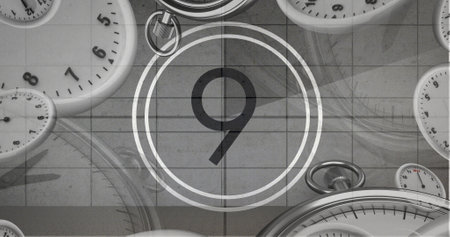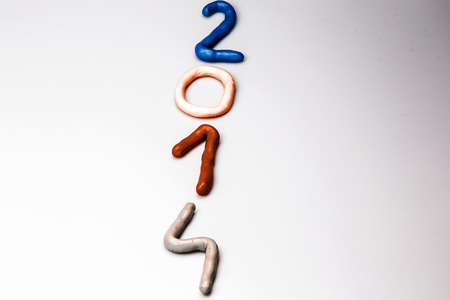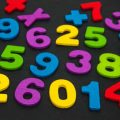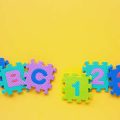1. Origins of Numerology: Tracing Ancient Roots
Numerology, at first glance, may appear a distinctly modern fascination, yet its roots stretch deep into the tapestry of ancient civilisations. To fully appreciate its impact on British culture today, one must journey back to societies where numbers held more than just mathematical value—they were imbued with mystical significance and cosmic resonance. The ancient Egyptians are credited as early pioneers, weaving numbers into their spiritual beliefs and architectural wonders. Simultaneously, in Mesopotamia, the Babylonians developed complex numerical systems that would later influence Western thought. Moving westward, the Greeks elevated numerology through philosophers like Pythagoras, who believed numbers to be the very essence of reality—a notion echoed centuries later by Roman scholars who integrated these ideas with their own cultural interpretations. This rich cross-cultural heritage laid the groundwork for numerology’s evolution in Europe and ultimately its subtle integration into British folklore, literature, and even architecture. By tracing these ancient threads, we can better understand how numerology became an enduring part of the British cultural landscape.
2. Numerology’s Migration to Britain
Numerology’s journey to Britain is a fascinating tale of cultural exchange, scholarly adaptation, and spiritual reinterpretation. While the roots of numerological thought can be traced back to ancient civilisations such as Egypt, Babylon, and Greece, it was through waves of conquest and intellectual curiosity that these practices eventually found fertile ground on British soil.
The Roman Occupation: The First Seeds
The earliest significant introduction of numerological ideas to Britain occurred during the Roman occupation (AD 43–410). The Romans brought with them not only their military prowess but also their advanced systems of knowledge, including elements of Pythagorean numerology. Roman scholars and administrators valued numerical symbolism in architecture, governance, and religious rituals—subtly embedding these concepts within early British society.
| Period | Key Influence | Cultural Impact |
|---|---|---|
| Roman Occupation | Pythagorean Numerology, Roman Mysticism | Introduction of numerical symbolism in public works and religious sites |
| Medieval Era | Christian Scholasticism, Kabbalistic Traditions | Integration into theological debates and mystical literature |
The Medieval Reinterpretation: Scholars & Mystics
The migration of numerological practices did not halt with the fall of Rome. In medieval Britain, especially from the twelfth century onwards, numerology experienced a renaissance among Christian scholars and mystics who sought deeper meaning within biblical texts. Influences from continental Europe—especially the Kabbalistic traditions from Jewish scholars in Spain and France—were woven into British interpretations. Figures such as Roger Bacon and John Dee delved into the mystical qualities of numbers, blending scientific inquiry with esoteric wisdom.
Key Figures and Their Contributions
- Roger Bacon: Explored numerical patterns within nature as evidence of divine order.
- John Dee: Court astrologer to Elizabeth I; integrated numerology into his occult studies and advisory work.
A Living Tradition
This rich history set the foundation for numerology’s enduring presence in British culture. As numerological ideas continued to evolve, they became deeply interwoven with local folklore, literature, and even architectural design—reflecting a uniquely British synthesis of imported wisdom and native tradition.

3. Numerology in British History and Folklore
Numbers have long been woven into the very fabric of British folklore, acting as more than mere markers or measures—they serve as vessels of meaning, superstition, and tradition. Delving into local myths and legends, one quickly discovers that sacred numbers punctuate stories passed down through generations, underpinning everything from heroic quests to seasonal rituals. For instance, the number three surfaces with almost mystical regularity: think of the classic “three wishes” granted by a magical being, or the iconic trio of Goldilocks’ bears. This recurring motif is not accidental; three symbolises completeness and harmony in many Celtic and Anglo-Saxon traditions, echoing ancient beliefs about balance in nature and the cosmos.
Similarly, seven carries deep resonance in British culture—perhaps most famously embodied in the “seven-year curse” or the seven sisters of English folklore. Rooted in biblical significance but adapted through centuries of local storytelling, seven often denotes luck, fate, or spiritual insight. The historic division of England into seven kingdoms (the Heptarchy) further cements its status as a number of power and transformation within collective memory.
Folkloric customs also draw upon numerological symbolism for protection and prosperity. From hanging horseshoes with seven nails above doorways to ward off evil spirits, to planting certain crops in threes for abundant harvests, these practices reveal an enduring belief in the power of numbers to shape destiny. Even today, traces of this numerological thinking can be found in nursery rhymes, seasonal festivals, and superstitions that persist across Britain’s diverse regions.
The influence of numerology on British storytelling is equally profound. Tales are structured around symbolic numbers to lend rhythm and resonance—whether it’s three trials a hero must face or twelve days of revelry during Christmas festivities. These patterns reinforce cultural values while connecting audiences to an ancient lineage of mythmaking where numbers serve as both cipher and guide.
Ultimately, numerology in British history and folklore is not just about arithmetic; it is a language through which communities have articulated hopes, fears, and aspirations over centuries. By reading between the numbers in local legends and rituals, we glimpse how Britons past and present use symbolism to make sense of the world—reminding us that sometimes, there’s far more to a simple digit than meets the eye.
4. The Influence of Numerology in British Literature and Arts
Throughout the centuries, numerological concepts have quietly woven themselves into the very fabric of British literature and the arts, often in ways that escape casual notice. From the age of Shakespeare to contemporary creative expressions, numbers have carried symbolic weight, shaping meaning and mood in subtle but profound ways. This section explores how iconic British works have drawn upon numerology, whether overtly or as an undercurrent, enriching both their structure and interpretation.
Shakespeare and the Magic of Numbers
William Shakespeare’s plays are a prime example of numerology’s understated influence. The Bard often employed specific numbers to reinforce themes or add layers of significance. Consider how the number three recurs throughout Macbeth: three witches, three prophecies, and three apparitions—each amplifying the play’s mystical atmosphere and sense of fate. Similarly, pairs and doubles abound in his comedies, reinforcing motifs of duality and mistaken identity.
Table: Notable Numbers in Iconic British Works
| Work | Number(s) | Symbolic Meaning |
|---|---|---|
| Macbeth (Shakespeare) | 3 | The supernatural; destiny; completeness |
| A Christmas Carol (Dickens) | 3 | The past, present, and future; transformation |
| The Waste Land (T.S. Eliot) | 5 | The five sections mirroring spiritual journey |
Poetry: Layers of Hidden Significance
Nineteenth- and twentieth-century poets also drew upon numerological motifs. In William Blake’s visionary works, numbers become keys to understanding mystical ideas about innocence, experience, and redemption. Even more modern poets like W.H. Auden subtly integrate numerical structures into stanzas or recurring lines—inviting readers to consider what these patterns might signify beneath the surface.
Visual Arts: Symbolism Beyond Words
The influence of numerology extends beyond language into the visual arts as well. Pre-Raphaelite artists such as Dante Gabriel Rossetti often incorporated repeated motifs—three lilies, seven stars—imbuing their paintings with spiritual resonance borrowed from numerological traditions. Modern installations by British artists may use number sequences or geometric repetition to provoke contemplation on order, chaos, or universal harmony.
A Cultural Conversation Across Time
What emerges is a fascinating dialogue across disciplines—where literature and art echo ancient numerological wisdom while reinterpreting it for new audiences. For those attuned to these subtleties, British cultural output reveals itself as more than mere storytelling or aesthetic pleasure; it becomes a layered narrative in which numbers serve as silent signposts guiding us toward deeper meaning.
5. Contemporary Interpretations and the Popularity of Numerology in the UK
In recent years, numerology has experienced a marked resurgence across Britain, weaving its way from obscure spiritual circles into the mainstream cultural tapestry. This renewed fascination is evident not only in the personal belief systems of many Britons but also in the vibrant market for numerological consultations and its prominent presence within popular media.
The Mainstream Appeal: From Page to Screen
Numerology now enjoys a far broader audience than it once did. British television programmes, podcasts, and glossy lifestyle magazines frequently feature segments on the mystical properties of numbers, birth dates, and names. Shows exploring life’s mysteries often invite numerologists to decode public figures’ destinies or interpret national events through a numerical lens. Social media platforms, too, have become fertile ground for influencers sharing daily number-based affirmations or tips on calculating one’s ‘life path’—all tailored with a distinctly British wit and sensibility.
A Personal Touch: Numerology as a Tool for Self-Discovery
For many individuals across the UK, numerology offers more than mere entertainment; it acts as a framework for self-reflection and decision-making. Some Britons consult numerologists before major life events—be it choosing a wedding date, launching a business, or even naming a newborn child. Others incorporate numerological guidance into their daily routines, treating it as an accessible way to explore identity and potential in a world that can often feel impersonal and chaotic.
The Thriving Market: Consultations and Professional Services
This growing interest has fueled a thriving industry of professional numerologists operating both online and in person throughout the UK’s cities and villages alike. High-street shops in places like Brighton or Glastonbury offer bespoke readings alongside tarot cards and crystals. Meanwhile, digital platforms connect clients with experts who provide tailored advice rooted in both ancient traditions and modern psychological insights. The appeal lies not just in prediction but in empowerment—an opportunity to gain fresh perspective on life’s challenges through numbers uniquely relevant to each individual.
Cultural Context: Why Now?
Britain’s renewed embrace of numerology reflects broader trends in society—a desire for meaning amidst uncertainty and a curiosity about alternative approaches to wellbeing. In an age where traditional institutions are often questioned, numerology offers a playful yet purposeful lens through which to navigate the complexities of contemporary British life. Its popularity reveals how old beliefs can be reimagined to fit new contexts, affirming that numbers still hold a profound place at the heart of British culture today.
6. Numerology, Superstition, and British Cultural Identity
In reflecting upon the British relationship with numerology, it becomes apparent that this ancient practice has woven itself into the very fabric of British cultural identity—albeit in a manner distinctly tinged with scepticism, wit, and a particular brand of superstition. Unlike some cultures where numerology is embraced with fervent belief, the British approach often balances curiosity with a healthy dose of irony and self-awareness.
The Subtlety of Superstition
Superstition in Britain is frequently understated, manifesting in everyday rituals and seemingly innocuous habits—avoiding the number thirteen when possible, or referencing “lucky sevens” in football pools and pub quizzes. While numerological concepts may underpin these traditions, they are often cloaked in humour or dismissed with a knowing wink rather than solemn reverence. This subtle interplay reveals a society comfortable with contradiction: rational on the surface yet quietly enchanted by the mysteries numbers might hold.
Scepticism Meets Belief
The British are renowned for their sceptical outlook, which extends to numerology as much as any other esoteric subject. Yet, this scepticism does not entirely negate belief; instead, it provides a backdrop against which such beliefs can be playfully entertained. It’s not uncommon to find Britons who will jokingly consult their “lucky numbers,” all while maintaining an air of disbelief. This ability to hold competing ideas—to laugh at one’s own superstitions while still indulging them—is quintessentially British.
Humour as Cultural Armour
Perhaps most telling is how humour serves as both shield and bridge in the conversation around numerology. The British tendency to deflate pretension with wit ensures that even the most mystical interpretations of numbers are approachable, never veering into dogma. Jokes about odd house numbers bringing bad luck or playful references to Friday the 13th soften any anxiety around the unknown, making numerology part of communal folklore rather than individual fear.
Ultimately, numerology’s influence on British culture is less about rigid adherence and more about an ongoing dialogue—one that reflects the nation’s pragmatic mindset paired with a quiet fascination for life’s unseen patterns. Through superstition, scepticism, and humour, Britons have made numerology their own: not as an immutable truth, but as another thread in the rich tapestry of cultural identity.


